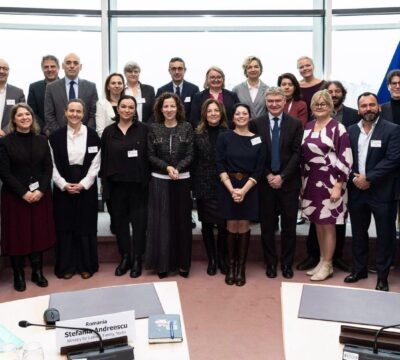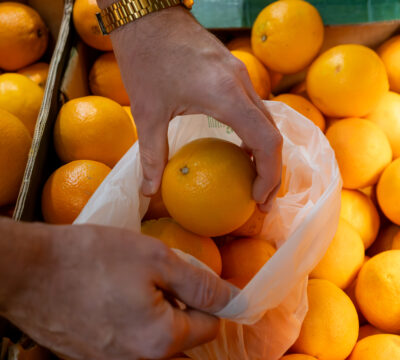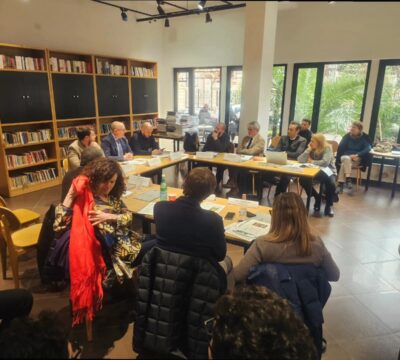From 10 to 12 September 2025, Bucharest became the hub of insight and exchange as 21 representatives from across the FEBA network gathered for the Data & ESG Summit 2025, hosted in partnership with the Romanian Food Banks Federation (Federația Băncilor pentru Alimente, FBAR). Over three dynamic days, participants explored how data and technology can be harnessed not only to strengthen food banking operations, but also to accelerate social and environmental impact across Europe.
The Summit opened with a deep dive into Romania’s food banking landscape, setting the stage for conversations that pushed beyond national borders to explore the future of data-driven impact. Experts from FEBA, FoodCloud (Ireland), and Anthesis highlighted the strategic importance of data collection and the Unified Data Framework (UDF), sparking discussions on how consistent, high-quality data can transform fundraising, shape public policy, and drive ESG reporting. Hands-on workshops turned ideas into action, empowering participants to analyse current practices, experiment with new approaches, and co-create guidelines for turning raw data into powerful insights for decision-making, advocacy, and donor engagement. The Year 5 results of FEBA’s Data Collection initiative further enriched the dialogue, offering a network-wide view of trends and impact, and sparking deeper knowledge-sharing and best-practice exchange on the results.
The Summit also spotlighted the digital tools shaping food banking today. Presentations by Tafel Deutschland e.V. (Germany), FBAR (Romania), and Food Bank Greece (Greece) showcased how IT systems, from operational platforms to virtual food banking, are being used to consolidate data and support ESG reporting. An interactive session invited participants to share experiences, assess their IT landscapes, and consider priorities around governance, standardisation, and future development.
By combining innovation, shared learning, and practical collaboration, the Summit reinforced FEBA’s commitment to advancing data-driven impact and supporting members in delivering stronger ESG performance across Europe.
By the end of the Summit, one message was clear: when innovation, harmonised methodologies, and robust data systems come together, food banks are equipped not just to serve communities today, but to lead Europe toward a more sustainable, resilient, and impactful future.


